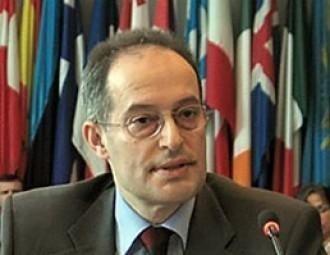The way death penalty is carried out in Belarus equals inhuman treatment, Haraszti says

UN Special Rapporteur calls to stop executions in Belarus after the recent death sentences.
The United Nations Special Rapporteur on the situation of human rights in Belarus, Miklos Haraszti, urged the Government of Belarus to start an immediate moratorium on executions before the relevant legislation and court system can be reformed and capital punishment can be removed from the country’s Criminal Code, “Lawtrend” says.
“I am deeply disappointed by the rulings of Belarusian courts which continue to hand down death sentences to the country’s citizens,” Mr. Haraszti said, expressing his regret regarding the decision of the country’s Supreme Court, which on 18 September ruled to uphold the death sentence handed to Pavel Selyun. Mr. Selyun was accused of double murder and theft of documents and, on 12 July 2013, was sentenced to death by the Hrodna Oblast Court in Belarus.
In the course of 2013, two other death sentences were handed down by Belarusian courts: on 24 April, Mahilou Regional Court handed down a death sentence to Gregory Yuzepchuk, and on 14 June, Homel Regional Court sentenced to death Aliaksandar Hrunau – both for murder charges. In the period 2010 – 2012, five executions were held, even though the UN Human Rights Committee had requested interim measures of protection.
“I ask the Belarusian authorities to use these new sentences as the starting point of a practical moratorium on actual executions, while focusing the work in its welcome parliamentary Committee set up to study the death penalty, on putting in place a legal moratorium on the death penalty, with a view to its abolition,” the human rights expert said.
“It is unacceptable that Belarusians must live in the fear that non transparent and politically-guided courts hand down death penalty sentences at the end of a procedure without guarantees of a fair trial or the right to appeal to international bodies,” Mr. Haraszti stressed.
He describes the lack of transparency and statistics on death executions in Belarus as “deplorable”. “Defendants are executed by a gunshot to the back of the head, the relatives of those executed are not informed of the scheduled date of execution, neither are relatives informed of where the body is buried,” said Mr. Haraszti. “The way the death penalty is carried out in Belarus amounts to inhuman treatment,” he warned.
Mr. Haraszti’s appeal to the Belarusian authorities has been endorsed by four other independent experts designated by the UN Human Rights Council: the Special Rapporteurs on the independence of the judiciary, Gabriela Knaul; summary executions, Christof Heyns; and torture, Juan E. Mйndez; and El Hadji Malick Sow, who currently heads the UN Working Group on Arbitrary Detention.
The UN Human Rights Council established the mandate of Special Rapporteur on the situation of human rights in Belarus in March 2012. As a Special Rapporteur, Miklos Haraszti (Hungary) is independent of any government or organisation, and serves in his individual capacity.
The latest report of the Special Rapporteur on Belarus is available here.
-
03.01
-
07.10
-
22.09
-
17.08
-
12.08
-
30.09



























